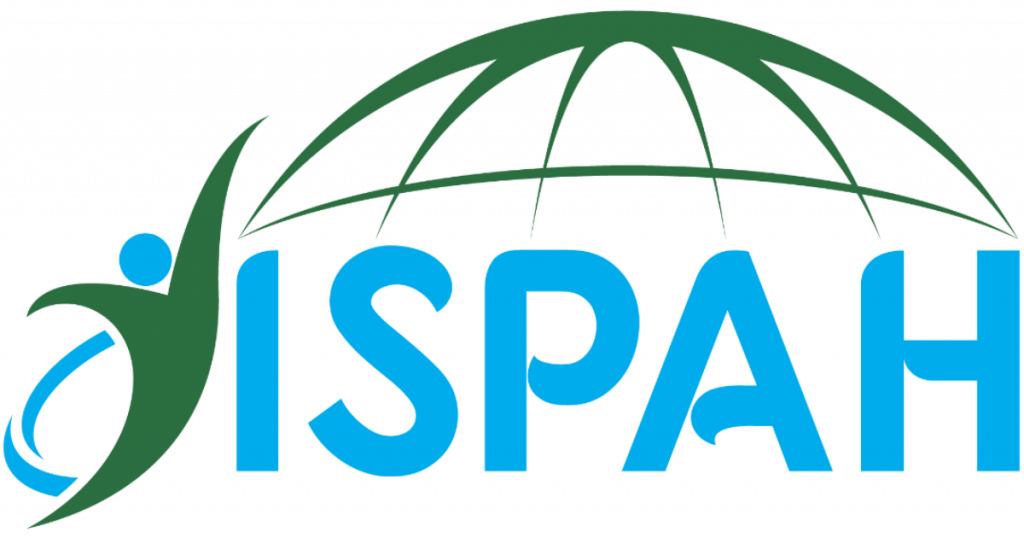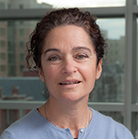Overview

In association with

Peer review is essential to ensuring the standards and legitimacy of scientific research.1 For those who have recently begun their careers as researchers, gaining experience while building confidence as a competent peer reviewer can be a challenging and overwhelming prospect. Thus, the International Society for Physical Activity & Health (ISPAH) and the Journal of Physical Activity & Health (JPAH) created the Bill Kohl Peer Review Academy—a mentor-driven program designed to elevate the skills for scientific manuscript peer review among early career researchers.
Graduates of the Academy will become more proficient at peer review through hands-on experience with manuscripts submitted to JPAH. Working in a one-on-one partnership with a mentor who has considerable experience as a peer reviewer, Academy participants will be trained in deliberating the ethical, scientific, and practical considerations of peer review. This will include learning how to properly consider a peer-review invitation, evaluating the scientific merit of a manuscript, and writing a constructive reviewer’s report. It is anticipated that Academy graduates will value and subsequently share these skills with colleagues.
Participants will be matched with a senior peer-review mentor with aligned research interests and, over the course of a one-year period, will work with the mentor to review at least two manuscripts submitted to JPAH. Academy participants who successfully complete the program will be formally recognized on the ISPAH and JPAH websites as Peer Review Academy Graduates, as well as being celebrated on ISPAH and JPAH social media accounts and honored at the next ISPAH Congress.
“Quality peer review is one of many things that isn’t taught routinely in graduate school,” said JPAH Editor Emeritus and ISPAH Fellow Harold W. (Bill) Kohl. “This Peer Review Academy is a fantastic opportunity for early career researchers who desire additional training as peer reviewers. We encourage those who are eager to participate as peer reviewers but have had insufficient experience to consider this educational opportunity.”
“Building capacity in the next generation of researchers is a key part of ISPAH’s mission and a focus of our Early Career Network,” said ISPAH President Karen Milton. “This Academy will provide meaningful training that will develop the next generation of peer reviewers and improve the research being published by a global community of scholars.”
Criteria
Academy participants should be recent PhD graduates (within four years) or nearing completion of their PhD in a physical activity-related field, and active researchers. Prior experience as a peer reviewer for JPAH or other journals is not required. Prior experience as a published author in JPAH or similar journals is beneficial. Although ISPAH membership is not required for application, all selected Academy participants must be active ISPAH members during their time in the program. Membership discounts are available for students and professionals from low- and middle-income countries in accordance with World Bank classifications.
Participants must be able to commit to 12 months of training and be available to consistently and effectively engage with their mentor and JPAH Editors to complete the peer review process for a minimum of two manuscripts as a peer reviewer for JPAH. Early career researchers from all cultures, countries, and climates are encouraged to apply. Participation will be limited to six Academy participants during the first year of the program.
Benefits
Participation in the Academy is an excellent educational opportunity to enhance and promote your professional profile. In addition to one-on-one mentoring and skill development as a peer reviewer, Academy participants will receive exclusive access to the members area of the ISPAH website, full access to publications in JPAH, priority booking onto ISPAH courses and exclusive webinars, and discounted registration at the biennial ISPAH Congress.
Completing the training is a great first step to additional engagement with JPAH’s Editorial Board and ISPAH’s various networks and councils. All participants who successfully complete Academy training will be formally recognised as a Bill Kohl Peer Review Academy Graduate, which can be noted on a CV.
Letter of Interest
Applicants should provide a CV and also write an Expression of Interest of no more than 500 words further detailing their research interests, peer review training and experience, and reasons for wanting to join the Academy. Prior experience as a JPAH author, reviewer, or reader, and as an ISPAH member or Congress participant, should be noted. Applicants must provide the name and email address of a supporter who may be asked to provide a brief Letter of Support. Applicants should ensure that their nominated supporter is aware of their application. A Letter of Support is not required as part of the initial application process.
Applications
We are not currently accepting applications for the peer review academy. Please sign up for our newsletter to keep updated on the next intake release dates!
References
1 Ding D, Hallal PC, DiPietro L, Kohl HW. A quick guide for becoming a better peer reviewer. J Phys Act Health. 2023;20(11):989–992. doi.org/10.1123/jpah.2023-0328
About the Name of the Academy

On January 7, 2024, Harold W. (Bill) Kohl III passed away. Professor Kohl was JPAH Editor Emeritus (2007-2011), founder and Past-president of ISPAH (2010-2014), and a highly cited researcher who helped to define physical inactivity as a global pandemic through his work with the initial Lancet Physical Activity Series Working Group.
His research focused on national and international physical activity surveillance and epidemiology, as well as program development and evaluation studies for the promotion of school-based physical activity for children and adolescents. He was also the co-author of the textbooks Foundations of Physical Activity and Public Health and Foundations of Kinesiology. Moreover, Bill Kohl was co-founder of this Peer Review Academy, which launched after his passing.
We recognize Bill’s passion for mentoring the next generation and the importance he placed on teaching peer review skills through the naming of the Academy in his honor.
Meet the Bill Kohl Peer Review Academy Mentors

David R. Bassett, Jr.
University of Tennessee, Knoxville, TN, USA
Professor Bassett is a professor emeritus at the University of Tennessee. He is a longtime JPAH Editorial Board member and has served on the steering committee of the U.S. National Physical Activity Plan. He has over 200 publications in peer-reviewed journals. His research focuses on measurement of physical activity and energy expenditure, cardiometabolic health benefits of physical activity (especially steps per day), and the relationship between active transportation and public health.

Stuart Biddle
University of Southern Queensland, Australia
Professor Biddle has a long track record of publications and leadership, including being Past-President of the European Federation for the Psychology of Sport and Physical Activity (FEPSAC) and the International Society for Behavioral Nutrition and Physical Activity (ISBNPA). He has published numerous books and more than 400 research papers over five decades. He is a highly cited author in both psychology and the sport and exercise sciences. He specialises in research addressing behavioural issues of physical activity and sedentary behaviour, including behaviour change and mental health. Stuart serves on six editorial boards and has held editorial positions for three journals.

Loretta DiPietro
George Washington University, USA
Professor DiPietro is JPAH Editor Emerita and a widely published researcher whose work builds bridges between population-based public health and the clinical and physiological domains of exercise science, with particular interest in the role of physical activity in the health of older adults. During her nine-year tenure as JPAH Editor, she oversaw the peer review process for thousands of articles.

Ulf Ekelund
Norwegian School of Sports Sciences; Norwegian Institute of Public Health, Norway
Professor Ekelund is a longtime JPAH Editorial Board member and former member of ISPAH’s Executive Committee whose has published more than 425 original publications. His highly cited research focuses on physical activity and sedentary time; patterns and trends in population levels of physical activity; the role of sedentary time and physical activity in preventing chronic diseases; and early life determinants of physical activity behaviour and its interaction with health outcomes across the life course.

Sjaan Gomersall
The University of Queensland, Australia
Associate Professor Gomersall is Associate Director of the Health and Wellbeing Centre for Research Innovation, President-Elect of ISPAH, and Co-Lead for the Asia-Pacific Society for Physical Activity’s Physical Activity in Healthcare Special Interest Group. Her research is concerned with understanding, measuring, and influencing physical activity and sedentary behaviour using a variety of methods and with a range of populations, with a focus on adults and the prevention and management of chronic disease.

Estelle V. (Vicki) Lambert
University of Cape Town, South Africa
Professor Emerita Lambert served on the ISPAH Executive Committee (2012-2016) and as a JPAH Senior Associate Editor. She has worked extensively with the WHO and AFPAN. As an author on >263 peer-reviewed publications, her research focuses on the burden of disease and epidemiology; aetiology and mechanisms of health effects/benefits; and correlates/determinants associated with physical activity across the life-course, including environmental determinants and environmental and behaviour change interventions.

Jasper Schipperijn
University of Southern Denmark, Denmark
Professor Schipperijn is ISPAH Past-president and serves on the JPAH Editorial Board. He has published >150 peer-reviewed articles. His research interests revolve around three main topics: 1) the health benefits of playgrounds, 2) conducting multi-disciplinary intervention studies to create active living environments, and 3) developing tools and methods that make it possible to measure active living and the environment it takes place in.
